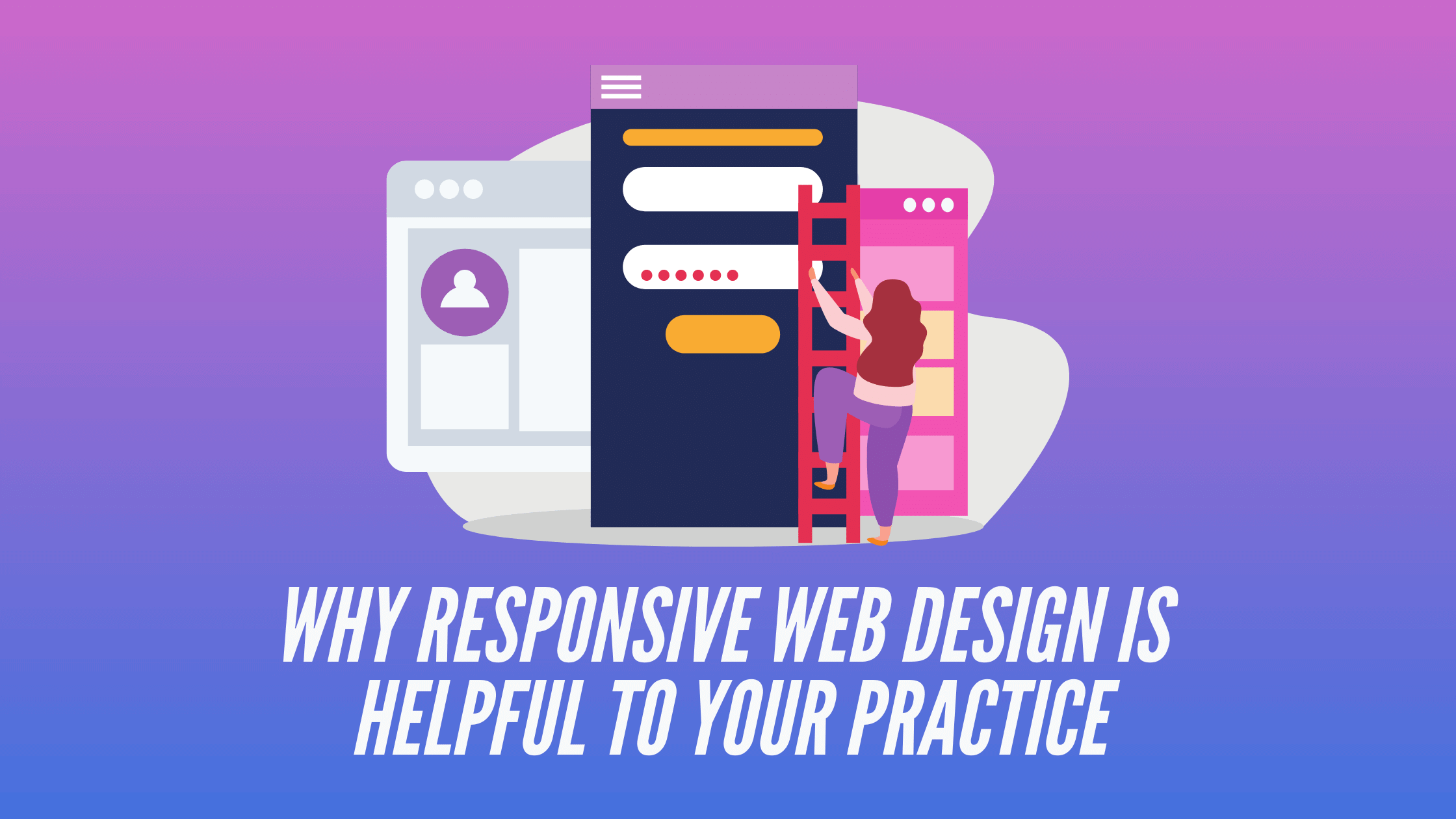As more people continue to use mobile devices such as smartphones and tablets for business tasks that previously required a laptop, one thing has become clear: mobile is the new center of the internet. Take-anywhere devices are now used for everything from social media surfing to app use, email scanning, and online shopping. That’s why your dental practice website needs to look good and work well on the smaller screen. To do that, you need to consider responsive design.
What is responsive design, and how does it work?
If your website has a responsive design, it can adjust to whatever computer users use to access it. Simply put, this web design strategy means that when someone visits your website on a smartphone, it automatically adjusts to look the same as it does on a laptop or tablet.
Visually rich content does not always load as quickly on a smartphone as it does on a laptop. As a result, you’ll need to adjust the design to suit the computer and screen size.
If you’re slow to respond to responsive design, you might be falling behind your competitors. Here are some reasons why you need a responsive design.
Everyone has a smartphone
With the apparent shift to more mobile use, it will surprise you to learn that many businesses have yet to make their websites responsive.
According to online behavioral trends, people use handheld devices for simple social media searching and study and shopping. To ensure a consistent view of useful information and content, the website must adjust to each user’s screen size.
Remember that your website is always the first point of contact for customers, so make sure it instills faith and trust right away.
Visitors will enjoy a better user experience
When it comes to web design, the most valuable commodity is your customers. After all, the website is where they can meet your dental practice for the first time online.As a result, you’ll want to pay close attention to the kind of experience you provide visitors to your website.
When you invest in responsive design, you’re giving your visitors a better experience. This is because the pages are going to load quickly and accurately. If anyone visits your website on a tablet at work and then shows the same page to a friend on their phone later, if it is responsive, it will load in the same way. While that may seem like a given, this consistent user experience will give your practice a more polished, professional edge.
Your website will enjoy a lower bounce rate
When your website visitor leaves within seconds of making it onto your page, it’s considered a ‘bounce, and Search engines typically consider high bounce rates to be a bad sign. A high bounce rate can be caused by various factors, with a non-responsive design being one of the most common.
So, what can you do to lower your bounce rate? You guessed it: Responsive design. In comparison to their non-responsive counterparts, responsive websites have lower bounce rates. Responsive websites present all of your website’s content in a more easy-to-use package, allowing users to stay on your page longer and lowering your bounce rate.
Google prefers responsive design
According to Google, the preferred mobile setup is responsive web design. Crawling the web and then indexing and organizing all of the content is easier for Google when there is only one (responsive) version of your site. Also, when only one website and URL are available, it is much easier for users to share, engage, and communicate with your website.
Future-proof your website
The most apparent benefit of responsive design is that it allows you to support new devices and displays in the future. Responsive websites can scale up or down to match the screens used to access the site. This means that as new gadgets of various screen sizes enter the market, responsive sites will still provide the best experience possible.
Want to improve the performance of your website by switching to a responsive design? Contact us for a free consultation to learn how to help you develop the right website for your dental practice.

